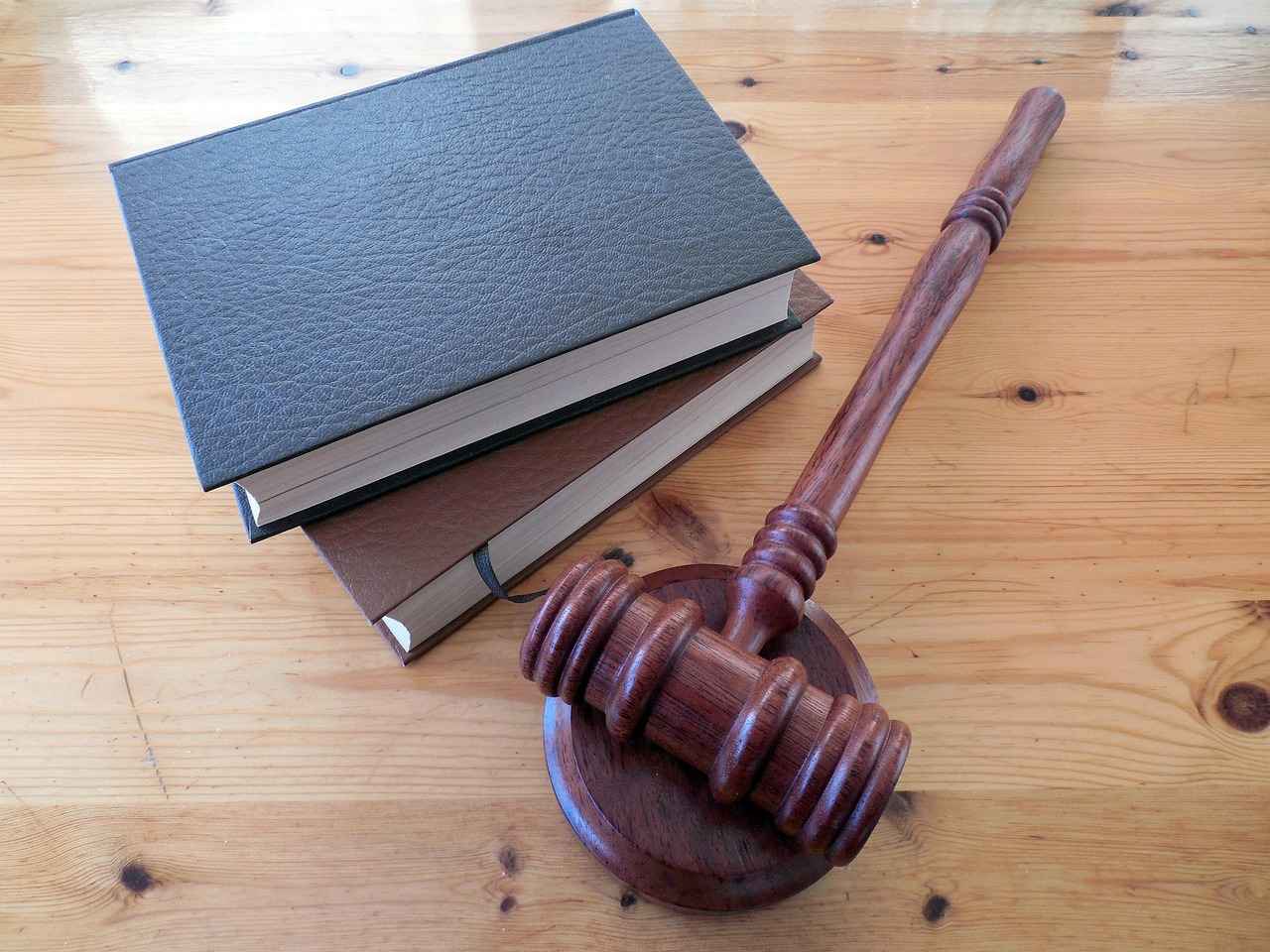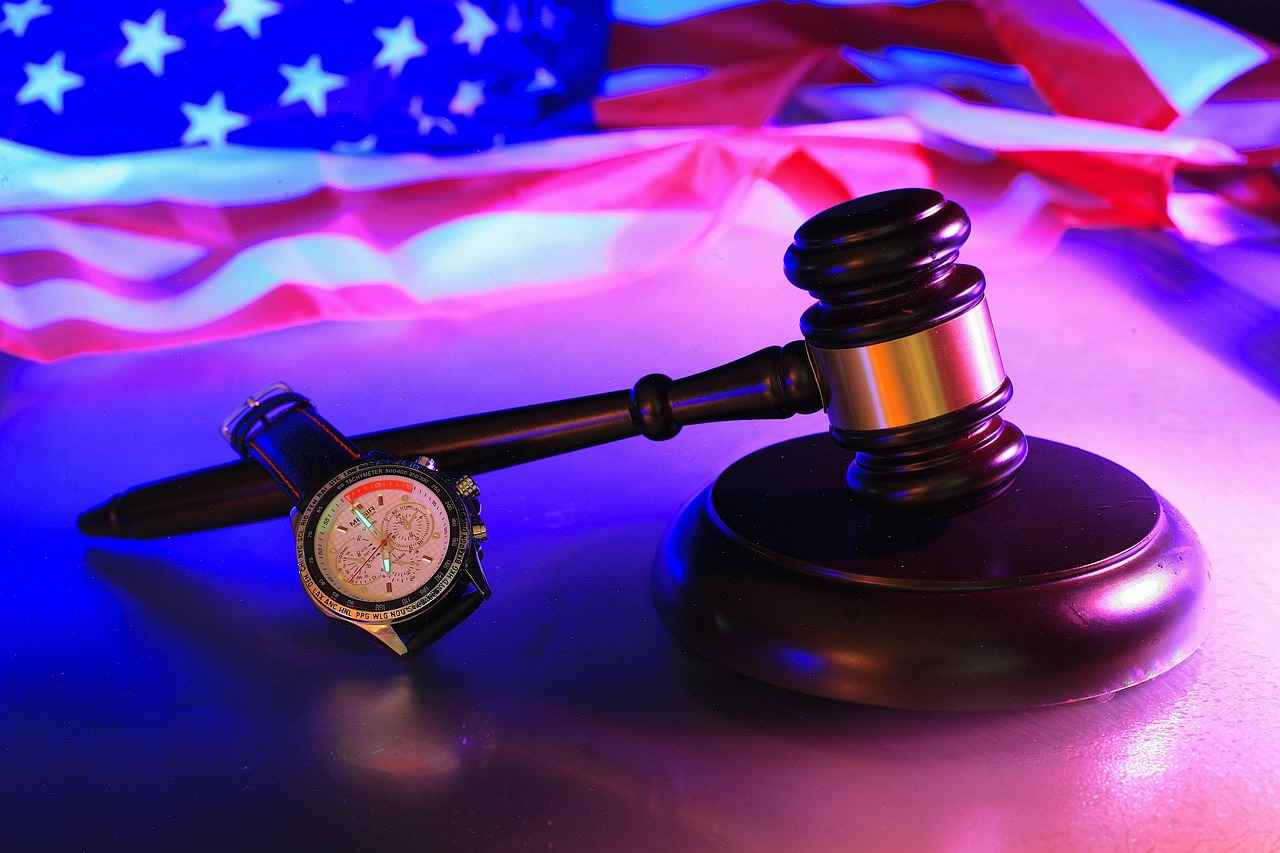This article explores various types of legal cases in the U.S. and provides expert guidance on how to find qualified attorneys in Long Beach, California.
Understanding Personal Injury Cases
Personal injury cases represent a significant portion of legal disputes in the United States. These cases typically arise when an individual suffers harm due to another’s negligence. Common incidents include car accidents, slip and falls, and workplace injuries. To find a qualified attorney for personal injury cases, consider looking for lawyers who specialize in this area and have a proven track record of successful settlements. Platforms like Avvo and FindLaw can help you identify reputable attorneys based on client reviews and case outcomes.
Medical Malpractice: What You Need to Know
Medical malpractice occurs when a healthcare professional fails to provide the standard of care, resulting in patient injury. This area of law is complex, and victims must understand their rights to seek justice. When searching for a medical malpractice attorney, prioritize those with specific experience in handling similar cases. Look for credentials such as board certifications and memberships in professional organizations, such as the American Association for Justice.
Breach of Contract: Legal Implications and Remedies
Breach of contract cases arise when one party fails to fulfill their contractual obligations. These disputes can occur in various contexts, including business agreements and personal contracts. To navigate these disputes effectively, seek an attorney with expertise in contract law. Platforms like Lawyers.com provide directories to help locate attorneys specializing in breach of contract cases. Be wary of attorneys who promise guaranteed outcomes, as this is often unrealistic.
Property Disputes: Navigating Real Estate Conflicts
Property disputes can involve issues such as boundary disagreements, easements, and landlord-tenant conflicts. Understanding your rights is key to resolving these matters effectively. When looking for a real estate attorney, consider their experience in local property laws. Check for reviews on platforms like Yelp to gauge client satisfaction and outcomes in similar disputes.
Landlord-Tenant Disputes: Rights and Responsibilities
Landlord-tenant disputes often arise over lease agreements, property maintenance, and eviction processes. Familiarity with local laws can empower both tenants and landlords. When seeking legal representation, look for attorneys who specialize in landlord-tenant law and have a good understanding of local regulations. Resources like Nolo can provide valuable information regarding tenant rights and finding qualified attorneys in your area.
Defamation: Understanding Libel and Slander
Defamation includes both libel (written) and slander (spoken) false statements that harm a person’s reputation. Knowing how to prove defamation is crucial for potential plaintiffs. When hiring an attorney for defamation cases, ensure they have experience in media law and a solid understanding of the First Amendment. Look for attorneys with a strong litigation background and positive client testimonials.
Employment Disputes: Employee Rights and Legal Protections
Employment disputes can involve wrongful termination, discrimination, and wage claims. Understanding employment law is essential for both employees and employers. Seek attorneys who specialize in labor law and have experience with the specific issues you are facing. Websites like LegalMatch can help you find attorneys who focus on employment disputes.
Product Liability: Holding Manufacturers Accountable
Product liability cases arise when consumers are harmed by defective products. Knowing the types of defects and legal standards can help victims seek compensation. When searching for a product liability attorney, prioritize those with experience in handling similar cases and a strong record of successful outcomes. Check their professional history and client reviews to assess their credibility.
Wrongful Death: Seeking Justice for Lost Loved Ones
Wrongful death claims allow families to seek compensation for losses due to another’s negligence. Understanding the legal process is vital for grieving families. It is crucial to find an attorney with experience in wrongful death cases and a compassionate approach to handling sensitive situations. Look for attorneys who offer free consultations, allowing you to discuss your case without financial pressure.
Class Action Lawsuits: Collective Legal Action
Class action lawsuits enable groups of individuals to collectively sue for damages. Understanding the criteria for joining a class action can empower affected consumers. When looking for an attorney to represent a class action, ensure they have experience in mass torts and class action litigation. Research their previous cases and settlements to gauge their effectiveness.
Assault and Battery: Legal Definitions and Consequences
Assault and battery are criminal offenses involving physical harm or the threat of harm. Understanding the legal definitions can help victims seek justice. When hiring an attorney for these cases, look for those with experience in criminal defense or personal injury law. A strong advocate will help you navigate the complexities of these cases effectively.
Drug Offenses: Navigating Complex Legal Landscapes
Drug offenses encompass a range of charges, from possession to trafficking. Understanding state and federal laws can be crucial for defendants. Seek attorneys who specialize in criminal defense and have specific experience in drug-related cases. Look for those who have a track record of reducing charges or achieving favorable outcomes for their clients.
Theft and Burglary: Distinctions and Legal Ramifications
Theft and burglary are serious offenses with varying legal consequences. Understanding the differences between them is essential for those facing charges. When searching for legal representation, prioritize attorneys with experience in criminal law and a successful history of defending against theft and burglary charges.
Fraud and Embezzlement: Protecting Your Interests
Fraud and embezzlement involve deceit for financial gain. Knowing how to identify and respond to these crimes can protect individuals and businesses from significant losses. When hiring an attorney for fraud cases, look for professionals with expertise in white-collar crime and a strong litigation background. Client reviews and case histories can provide insight into their effectiveness.

Understanding Personal Injury Cases
Personal injury cases are a significant area of law that addresses incidents where individuals suffer harm due to the negligence or wrongful actions of others. These cases can arise from a variety of situations, making them complex and multifaceted. Among the most common types of personal injury cases are car accidents, slip and falls, and workplace injuries.
In the context of car accidents, victims often face physical injuries, emotional distress, and financial burdens from medical bills and lost wages. It is crucial for victims to document the accident scene, gather witness statements, and seek medical attention promptly. This documentation can be invaluable when pursuing a claim against the negligent driver or their insurance company.
Slip and fall incidents typically occur on someone else’s property due to hazardous conditions, such as wet floors, uneven surfaces, or poor lighting. Property owners have a legal obligation to maintain safe premises, and failure to do so can result in liability for injuries sustained by visitors. Victims should take photos of the scene and report the incident to the property owner or manager as soon as possible to strengthen their case.
Workplace injuries encompass a wide range of incidents, from construction accidents to repetitive strain injuries. Workers’ compensation laws provide a safety net for employees injured on the job, allowing them to receive medical benefits and compensation for lost wages. However, navigating the workers’ compensation system can be challenging, and victims may benefit from consulting with an attorney who specializes in this area of law.
When pursuing a personal injury claim, it is essential to understand the legal process and the potential challenges involved. Insurance companies often aim to minimize payouts, and having a knowledgeable attorney can significantly enhance the likelihood of a favorable outcome. Therefore, individuals seeking to file a personal injury claim should prioritize finding a qualified lawyer with experience in handling similar cases.
In summary, personal injury cases cover a broad spectrum of incidents caused by negligence, including car accidents, slip and falls, and workplace injuries. Each type of case has its nuances, and understanding these differences is vital for victims seeking justice and compensation for their suffering.

Medical Malpractice: What You Need to Know
Medical malpractice is a significant area of concern within the healthcare system, impacting countless individuals each year. It occurs when a healthcare professional, such as a doctor or nurse, fails to provide the standard of care expected in their field, resulting in injury or harm to a patient. Understanding this complex area is crucial for victims seeking justice and compensation for their suffering.
To establish a case of medical malpractice, the following elements must be proven:
- Duty of Care: The healthcare professional had a responsibility to provide care to the patient.
- Breaches of Duty: The professional failed to meet the accepted standard of care.
- Causation: The breach of duty directly caused the patient’s injury.
- Damages: The patient suffered actual harm or damage as a result.
Medical malpractice cases can arise from various situations, including:
- Misdiagnosis or delayed diagnosis
- Surgical errors
- Medication errors
- Failure to obtain informed consent
- Negligent prenatal care leading to birth injuries
For victims of medical malpractice, navigating the legal landscape can be daunting. Here are some essential steps to consider when seeking legal representation:
- Research Experienced Attorneys: Look for lawyers who specialize in medical malpractice cases. Check their track record for successful outcomes in similar cases.
- Check Credentials: Verify the attorney’s education, licensing, and any disciplinary actions. Membership in professional organizations, such as the American Association for Justice, can also be a positive sign.
- Read Reviews and Testimonials: Online reviews can provide insight into an attorney’s reputation and the experiences of past clients.
- Consultations: Many attorneys offer free initial consultations. Use this opportunity to gauge their expertise, communication style, and how comfortable you feel discussing your case.
- Discuss Fees: Understand the attorney’s fee structure, including any contingency fees. Ensure that you are clear on how costs will be handled if you win or lose your case.
In metropolitan areas like New York City and Los Angeles, the competition among attorneys can be fierce. Therefore, it’s crucial to not only find a qualified attorney but also one who understands the local legal landscape and has experience dealing with medical malpractice cases in that jurisdiction.
Additionally, be wary of red flags when hiring a legal professional. These can include:
- Promises of guaranteed outcomes or settlements
- Lack of transparency regarding fees and costs
- Inability to provide references or case examples
- Pressure to sign contracts quickly without adequate explanation
In conclusion, medical malpractice is a serious issue that requires expert legal guidance. By understanding the essential elements of a malpractice case and knowing how to find a qualified attorney, victims can take proactive steps toward seeking justice and compensation for their injuries.

Breach of Contract: Legal Implications and Remedies
A breach of contract occurs when one party fails to meet their obligations as outlined in a legally binding agreement. This can happen in various contexts, including business transactions, real estate deals, and personal agreements. Understanding the legal implications of a breach is essential for both individuals and businesses, as it can lead to significant financial and legal repercussions.
When a breach occurs, the non-breaching party is typically entitled to seek remedies. These remedies can include:
- Compensatory Damages: These are designed to cover the actual losses incurred due to the breach. The goal is to make the injured party whole again.
- Consequential Damages: These damages cover indirect losses that occur as a result of the breach, such as lost profits.
- Specific Performance: In some cases, the court may order the breaching party to fulfill their obligations as originally agreed.
- Rescission: This remedy cancels the contract, releasing both parties from their obligations.
To navigate breach of contract disputes effectively, it is crucial to understand the terms of the contract thoroughly. Here are some practical steps to take:
- Review the Contract: Ensure you understand the obligations and rights outlined in the agreement.
- Document Everything: Keep records of all communications and actions taken related to the contract.
- Seek Legal Counsel: Consulting with an attorney who specializes in contract law can provide guidance tailored to your situation.
When searching for a qualified attorney in Long Beach, California, or other metropolitan areas, consider the following:
- Check Credentials: Look for attorneys with experience in contract law and a successful track record in similar cases.
- Read Reviews: Online platforms like Avvo or Martindale-Hubbell can provide insights into an attorney’s reputation.
- Ask for Referrals: Personal recommendations from friends or colleagues can lead you to trustworthy legal professionals.
- Initial Consultations: Many attorneys offer free consultations; use this opportunity to assess their expertise and approach.
Be aware of red flags when hiring an attorney, such as:
- Lack of Communication: An attorney who is unresponsive or vague may not prioritize your case.
- Unclear Fee Structures: Ensure you understand how the attorney charges for their services to avoid unexpected costs.
- Negative Reviews: Consistent poor feedback can indicate potential issues with the attorney’s practice.
In conclusion, understanding breach of contract cases and knowing how to find the right attorney can significantly impact the outcome of your dispute. By taking the time to research and evaluate potential legal representatives, you can better protect your interests and navigate the complexities of contract law.

Property Disputes: Navigating Real Estate Conflicts
Property disputes can be a significant source of conflict, often leading to prolonged legal battles that can be both emotionally and financially draining. These disputes can arise from a variety of issues, including boundary disagreements, easements, and landlord-tenant conflicts. Understanding your rights and obligations in these situations is crucial for effective resolution.
One common type of property dispute involves boundary disagreements. These occur when two property owners disagree on the exact location of their property lines. To resolve such disputes, it is advisable to consult a qualified attorney who specializes in real estate law. They can help you gather necessary documentation, such as surveys and title deeds, to establish your claim. Additionally, engaging a professional surveyor can provide an accurate assessment of the property boundaries, which can be instrumental in resolving the conflict amicably.
Another issue frequently encountered in property disputes is related to easements. An easement is a legal right to use another person’s land for a specific purpose, such as accessing utilities or driveways. Disputes can arise when one party believes the easement is being violated or misused. In such cases, it is essential to review the easement agreement thoroughly, as it outlines the rights and responsibilities of each party. Legal counsel can assist in interpreting the terms and may help negotiate a solution that respects both parties’ rights.
Landlord-tenant conflicts are also prevalent in property disputes. These disputes can stem from issues like unpaid rent, property maintenance, or eviction processes. Tenants and landlords must understand their rights and responsibilities under local laws. For instance, most jurisdictions have specific regulations governing eviction procedures that landlords must follow. Tenants should familiarize themselves with these laws and seek legal advice if they believe their rights are being violated. Conversely, landlords should ensure they adhere to legal protocols to avoid potential litigation.
To navigate property disputes effectively, it is critical to gather evidence and maintain clear communication with the other party involved. Keeping detailed records of all interactions, agreements, and relevant documents can significantly strengthen your position in any legal proceedings. Moreover, seeking mediation or arbitration can often lead to a quicker, less adversarial resolution than going to court.
In conclusion, property disputes can be complex and multifaceted. Understanding the nuances of your rights and responsibilities is vital in resolving these conflicts efficiently. Consulting with a knowledgeable attorney who specializes in property law can provide the guidance necessary to navigate these challenges successfully.

Landlord-Tenant Disputes: Rights and Responsibilities
Landlord-tenant disputes are a common occurrence in the realm of real estate, often stemming from misunderstandings or disagreements over various aspects of the lease agreement. These disputes can significantly impact both parties, making it essential to understand their rights and responsibilities. Knowledge of local laws can empower both tenants and landlords, ensuring that they navigate these conflicts effectively.
One of the primary sources of disputes arises from lease agreements. These documents outline the terms of the rental arrangement, including rent amounts, maintenance responsibilities, and rules regarding property use. When either party fails to adhere to these terms, conflicts can arise. For instance, a landlord may neglect necessary repairs, leading to a tenant’s discomfort or safety issues, while a tenant may fail to pay rent on time, prompting eviction proceedings.
Another significant area of contention is property maintenance. Landlords are typically responsible for maintaining the property’s condition, ensuring that it meets safety and health standards. However, tenants also have a role to play, as they must report issues promptly and take reasonable care of the property. Failure to fulfill these responsibilities can lead to disputes that may escalate to legal action.
The eviction process is another common point of conflict. Landlords must follow specific legal procedures to evict a tenant, which can vary by state. Understanding these procedures is crucial for both parties. Tenants should be aware of their rights during eviction proceedings, including the right to contest the eviction in court. On the other hand, landlords must ensure they comply with local laws to avoid wrongful eviction claims.
To navigate landlord-tenant disputes effectively, both parties should consider seeking legal advice. Consulting with a qualified attorney familiar with local real estate laws can provide clarity and help resolve conflicts amicably. Additionally, mediation services can offer a platform for both parties to discuss their issues and reach a mutually beneficial agreement without resorting to litigation.
Ultimately, being informed about local laws and understanding the lease agreement are vital steps in preventing and resolving landlord-tenant disputes. By fostering open communication and maintaining a clear understanding of each party’s responsibilities, many conflicts can be avoided altogether.

Defamation: Understanding Libel and Slander
Defamation is a critical area of law that encompasses both libel and slander. These terms refer to false statements made about an individual that can cause significant harm to their reputation. Understanding the nuances of these concepts is essential for anyone considering legal action in this domain.
Libel pertains to written statements, while slander refers to spoken words. Both forms of defamation can have devastating effects on a person’s personal and professional life. For instance, a false accusation published in a newspaper can lead to job loss, damaged relationships, and emotional distress. Similarly, a damaging statement made in a public forum can tarnish an individual’s reputation and lead to social isolation.
To prove defamation, a plaintiff must establish several key elements. First, they must demonstrate that a false statement was made. This often requires a thorough investigation to gather evidence. Next, it must be shown that the statement was not only false but also damaging to the plaintiff’s reputation. This can involve presenting testimony from witnesses or experts who can attest to the impact of the statement.
Another crucial aspect of proving defamation is establishing that the statement was made with negligence or malice. In cases involving public figures, the standard is even higher; plaintiffs must prove that the statement was made with actual malice, meaning that the speaker knew the statement was false or acted with reckless disregard for the truth.
Potential plaintiffs should also be aware of the statute of limitations for filing a defamation claim, which varies by state. In many jurisdictions, the time frame is relatively short, often ranging from one to three years. Therefore, it is crucial to act promptly if you believe you have been defamed.
When seeking legal representation for a defamation case, it is essential to find an attorney with specific experience in this area of law. Look for lawyers who have successfully handled similar cases and have a track record of favorable outcomes. You can search for qualified attorneys through various online platforms, such as Avvo or FindLaw, which provide ratings and reviews from previous clients.
Additionally, consider checking for credentials such as membership in the American Bar Association or local bar associations, as these affiliations often indicate a commitment to professionalism and ethical standards. Be cautious of red flags, such as attorneys who guarantee outcomes or those who have numerous complaints filed against them.
In summary, understanding the complexities of defamation law is vital for anyone considering a claim. By knowing the elements required to prove defamation and how to find the right legal representation, individuals can better navigate this challenging area of law.

Employment Disputes: Employee Rights and Legal Protections
Employment disputes represent a significant area of concern in the workplace, affecting both employees and employers. These disputes can manifest in various forms, including wrongful termination, discrimination, and wage claims. Understanding the intricacies of employment law is essential for navigating these challenges effectively.
When it comes to wrongful termination, employees may find themselves dismissed from their jobs for reasons that violate labor laws or employment contracts. This can include being fired for reporting illegal activities, filing a workers’ compensation claim, or taking family leave. Employers must be cautious and ensure that terminations are well-documented and justified to avoid potential legal repercussions.
Discrimination in the workplace can take many forms, including bias based on race, gender, age, religion, or disability. Employees facing discrimination may experience a hostile work environment, unequal pay, or lack of opportunities for advancement. It is important for employees to understand their rights under federal and state laws, such as the Equal Employment Opportunity Commission (EEOC), which enforces laws against workplace discrimination.
Wage claims often arise from disputes over unpaid wages, overtime compensation, or misclassification of employees. The Fair Labor Standards Act (FLSA) outlines the rights of employees regarding minimum wage and overtime pay. Both employees and employers should familiarize themselves with these regulations to prevent disputes that could lead to costly legal battles.
To effectively address employment disputes, individuals should consider several steps:
- Document Everything: Keep detailed records of incidents, communications, and any relevant documentation that supports your claims.
- Consult Legal Experts: Seek advice from attorneys specializing in employment law to understand your rights and potential courses of action.
- Utilize Mediation Services: Many disputes can be resolved through mediation, which can be a less adversarial and more cost-effective approach than litigation.
- Know Your Rights: Familiarize yourself with federal and state employment laws to empower yourself in any dispute.
Finding a qualified attorney to handle employment disputes is crucial. Here are some tips:
- Research Credentials: Look for attorneys with experience in employment law and a strong track record of success in similar cases.
- Read Reviews: Check online reviews and testimonials to gauge the attorney’s reputation and client satisfaction.
- Consultation: Many attorneys offer free consultations; take advantage of this to discuss your case and assess their expertise.
- Avoid Red Flags: Be wary of attorneys who guarantee outcomes or pressure you to sign contracts without thorough discussion.
In major metropolitan areas such as New York City, Los Angeles, and Chicago, the competition among legal professionals is fierce. Utilize platforms like Avvo, FindLaw, and your local bar association to find reputable attorneys in your area. Additionally, consider reaching out to local legal aid organizations for guidance.
In summary, employment disputes can be complex and emotionally charged. Understanding your rights and seeking the appropriate legal assistance can make a significant difference in the outcome of your case. By being informed and proactive, both employees and employers can navigate these challenges more effectively.

Product Liability: Holding Manufacturers Accountable
Product liability refers to the legal responsibility of manufacturers, distributors, and retailers to ensure that their products are safe for consumers. When a consumer suffers harm due to a defective product, they may have grounds to file a product liability case. Understanding the various types of defects and the legal standards that apply can significantly aid victims in seeking compensation for their injuries.
There are three primary types of defects that can lead to product liability claims:
- Design Defects: These occur when a product is inherently unsafe due to its design. Even if the product is manufactured correctly, a flaw in the design can make it dangerous. For example, a car with a design flaw that increases the risk of rollover accidents could lead to serious injuries.
- Manufacturing Defects: These defects happen during the production process. A product may be designed safely, but if there is an error during manufacturing—such as using substandard materials or not following safety protocols—it can become dangerous. For instance, a batch of medication that is contaminated during production can cause severe health issues.
- Marketing Defects: Also known as failure to warn, these defects occur when a product lacks adequate instructions or warnings about its use. If a consumer is injured because they were not informed about the risks associated with a product, the manufacturer may be held liable. For example, a household cleaner that does not clearly state that it should not be mixed with other chemicals could lead to harmful reactions.
In the context of product liability, the legal standards can vary by state, but typically, plaintiffs must prove that the product was defective and that the defect caused their injury. In some jurisdictions, the concept of strict liability applies, meaning that the injured party does not need to prove negligence on the part of the manufacturer or seller. Instead, they only need to demonstrate that the product was defective and that it caused harm.
To effectively navigate a product liability case, victims should consider the following steps:
- Document Everything: Collect evidence related to the defect and the injury. This includes photographs of the product, medical records, and any correspondence with the manufacturer or retailer.
- Consult an Experienced Attorney: Finding a lawyer who specializes in product liability is crucial. Look for attorneys with a proven track record in similar cases and positive client reviews.
- Understand the Statute of Limitations: Each state has a specific time frame in which a victim can file a product liability claim. It’s essential to be aware of these deadlines to ensure that your case is filed in time.
- Gather Witnesses: If others have experienced similar issues with the product, their testimonies can strengthen your case. Collect contact information and statements from these individuals.
When searching for a qualified attorney, consider utilizing online legal directories, bar association referrals, and personal recommendations. Look for credentials such as board certification in personal injury law and membership in relevant legal organizations. Additionally, be wary of red flags such as attorneys who guarantee outcomes or those who have numerous complaints against them.
Product liability cases can be complex, but understanding the types of defects and knowing how to seek legal help can empower victims to hold manufacturers accountable for their actions. By taking informed steps and working with a knowledgeable attorney, individuals can pursue the justice and compensation they deserve.

Wrongful Death: Seeking Justice for Lost Loved Ones
When a loved one dies due to the negligence or misconduct of another, the emotional toll can be overwhelming. Wrongful death claims provide a legal avenue for families to seek justice and compensation for their profound losses. Understanding the intricacies of this legal process is essential for grieving families navigating through their sorrow while attempting to secure their future.
In the United States, wrongful death claims can arise from various circumstances, including car accidents, medical malpractice, workplace accidents, and even criminal acts. Each case requires a thorough understanding of the law, as well as the ability to prove that the death was caused by another party’s negligence. The burden of proof lies with the plaintiff, who must demonstrate that the defendant’s actions directly led to the fatality.
| Common Causes of Wrongful Death | Examples |
|---|---|
| Car Accidents | Negligent driving, DUI, distracted driving |
| Medical Malpractice | Misdiagnosis, surgical errors, medication mistakes |
| Workplace Accidents | Unsafe working conditions, lack of training |
| Criminal Acts | Murder, manslaughter |
Families pursuing a wrongful death claim can seek compensation for various damages, including:
- Funeral expenses: Costs associated with burial or cremation.
- Loss of income: Financial support that the deceased would have provided.
- Pain and suffering: Emotional distress experienced by the family.
- Loss of companionship: The impact of losing a loved one on familial relationships.
Finding the right attorney to handle a wrongful death case is crucial. Here are some expert tips for locating a qualified lawyer in major metropolitan areas:
- Research Credentials: Look for attorneys with experience specifically in wrongful death cases. Verify their educational background, bar association memberships, and any relevant certifications.
- Check Reviews and Testimonials: Online platforms like Avvo and Martindale-Hubbell provide ratings and reviews from past clients, which can help gauge an attorney’s reputation.
- Schedule Consultations: Most attorneys offer free initial consultations. Use this opportunity to assess their communication style, understanding of your case, and overall approach.
- Ask About Fees: Understand the attorney’s fee structure. Many wrongful death attorneys work on a contingency basis, meaning they only get paid if you win the case.
- Evaluate Comfort Level: It’s essential to feel comfortable with your attorney, as you will be sharing sensitive information. Trust your instincts during the initial meetings.
Additionally, it is important to be aware of potential red flags when hiring a legal professional. Watch for:
- Guarantees of Outcomes: No lawyer can guarantee the outcome of a case. Be cautious of those who make unrealistic promises.
- Lack of Communication: An attorney should be responsive and keep you informed about your case’s progress.
- High Pressure Tactics: Avoid attorneys who pressure you into making quick decisions or signing contracts without ample time for consideration.
In conclusion, navigating the legal landscape of wrongful death claims can be daunting. However, with the right attorney by your side, families can seek the justice they deserve while honoring the memory of their lost loved ones.

Class Action Lawsuits: Collective Legal Action
Class action lawsuits serve as a powerful legal tool that allows a group of individuals who have suffered similar harm to join together in a single lawsuit against a defendant. This collective action can be particularly effective in cases where individual claims might be too small to justify the cost of pursuing legal action alone. By banding together, consumers can leverage their collective strength and resources to seek justice and compensation for damages incurred.
To successfully participate in a class action lawsuit, there are specific criteria that individuals must meet. Firstly, the claims of the group must share common questions of law or fact. This means that the issues at stake must be similar enough that they can be adjudicated collectively, rather than requiring separate trials for each individual claim. Additionally, the group must be sufficiently large to warrant a class action, which is often determined by the number of affected individuals and the geographical scope of the harm.
Understanding the criteria for joining a class action is crucial for affected consumers. Individuals must demonstrate that they are part of a defined class, which is typically established by the court. This can include consumers who purchased a defective product, employees affected by unfair labor practices, or individuals harmed by misleading advertising. Furthermore, potential class members should be aware of the time limits for joining a class action, which can vary by jurisdiction and case type.
In addition to understanding the basic requirements, it is essential for individuals to be informed about the potential benefits and drawbacks of participating in a class action lawsuit. On one hand, class actions can provide access to legal recourse that might otherwise be unattainable for individuals. They can also help to hold corporations accountable for their actions, leading to changes in practices that benefit consumers as a whole. On the other hand, individuals may receive a smaller portion of any settlement or judgment than they would if they pursued their claims independently, as the damages are often distributed among all members of the class.
When considering whether to join a class action lawsuit, individuals should also pay attention to the attorneys representing the class. It is crucial to ensure that the legal team has a strong track record in handling class action cases and a reputation for advocating effectively for their clients. Researching the firm’s history, reading client testimonials, and verifying their credentials can provide valuable insight into their capabilities.
In conclusion, class action lawsuits present a unique opportunity for individuals to seek justice collectively. By understanding the criteria for joining such actions and being aware of the implications involved, affected consumers can make informed decisions about their legal options. Whether seeking to join an existing class action or considering the initiation of one, individuals should consult with experienced attorneys who specialize in class action litigation to navigate the complexities of the legal process.

Assault and Battery: Legal Definitions and Consequences
Assault and battery are serious criminal offenses that can have profound legal and personal consequences for both the victim and the perpetrator. Understanding the legal definitions of these terms is crucial for anyone involved in such cases, whether as a victim seeking justice or as a defendant navigating the legal system.
Assault typically refers to the act of intentionally causing another person to fear imminent physical harm. It does not necessarily involve physical contact; the mere threat of harm can constitute assault. For example, if someone raises a fist and threatens to hit another person, that can be classified as assault, even if no actual contact occurs.
Battery, on the other hand, involves actual physical contact. It is the unlawful application of force against another person, which can result in injury or even minor physical harm. For instance, if someone punches another person, that action qualifies as battery. It’s important to note that both assault and battery can occur independently; one can be charged with assault without being charged with battery, and vice versa.
The consequences of being charged with assault or battery can vary significantly based on the severity of the offense and the jurisdiction in which it occurred. In many cases, these offenses are classified as misdemeanors, which can lead to fines, probation, or short-term imprisonment. However, if the assault or battery involves aggravating factors—such as the use of a weapon or the intent to cause serious bodily harm—charges can escalate to felonies, resulting in more severe penalties, including lengthy prison sentences.
Victims of assault and battery have the right to seek legal recourse. This may involve pursuing criminal charges against the perpetrator or filing a civil lawsuit for damages. It’s essential for victims to document all evidence related to the incident, including photographs of injuries, medical records, and witness statements. Consulting with a qualified attorney who specializes in personal injury or criminal defense can provide victims with the guidance they need to navigate the complex legal landscape.
In many metropolitan areas, such as Los Angeles, New York City, and Chicago, finding the right attorney is crucial. Here are some steps to consider when searching for legal representation:
- Research and Referrals: Start by seeking referrals from friends, family, or local bar associations. Online reviews and ratings can also provide insights into an attorney’s reputation.
- Credentials and Experience: Look for attorneys with specific experience in assault and battery cases. Check their educational background, years of practice, and any relevant certifications.
- Initial Consultations: Many attorneys offer free initial consultations. Use this opportunity to discuss your case and gauge the attorney’s expertise and approach.
- Clear Communication: Choose an attorney who communicates clearly and promptly. You want someone who will keep you informed throughout the legal process.
- Fee Structure: Understand the attorney’s fee structure upfront. Some may work on a contingency basis, while others may charge hourly rates. Ensure you are comfortable with the financial arrangement.
It is also vital to be aware of red flags when hiring a lawyer. Avoid attorneys who make unrealistic promises about the outcome of your case or those who lack transparency regarding their fees. Additionally, if an attorney is unresponsive or dismissive during your initial meetings, it may be a sign that they will not prioritize your case.
In conclusion, understanding the legal definitions and potential consequences of assault and battery is essential for anyone affected by these offenses. Whether you are a victim seeking justice or a defendant facing serious charges, having the right legal representation can significantly impact the outcome of your case. By following the outlined steps and being diligent in your search for qualified attorneys, you can better navigate the complexities of the legal system and work towards a favorable resolution.

Drug Offenses: Navigating Complex Legal Landscapes
Drug offenses represent a significant area of concern within the U.S. legal system, encompassing a variety of charges that range from simple possession to large-scale trafficking operations. The complexities of drug laws can vary dramatically between state and federal jurisdictions, making it crucial for defendants to understand the legal landscape they are navigating.
Charges related to drug offenses can include:
- Possession of controlled substances
- Distribution and trafficking
- Manufacturing illegal drugs
- Possession with intent to distribute
- Drug paraphernalia offenses
Each of these charges carries different legal implications and potential penalties. For instance, possession of a small amount of marijuana may result in a minor fine in some states, while trafficking a large quantity of heroin can lead to significant prison time. Understanding the specific laws and potential defenses available is essential for anyone facing these charges.
When looking for a qualified attorney to handle drug offense cases, consider the following guidelines:
- Experience in Drug Law: Look for attorneys who specialize in drug offenses and have a proven track record of success in similar cases.
- Local Expertise: An attorney familiar with the local court system and prosecutors can navigate the complexities of your case more effectively.
- Client Reviews: Research online reviews and testimonials to gauge the attorney’s reputation and success rate.
- Initial Consultation: Most attorneys offer free consultations. Use this opportunity to assess their knowledge and approach to your case.
- Transparent Fees: Ensure that the attorney provides a clear breakdown of their fees and any additional costs that may arise during the legal process.
Additionally, be wary of red flags when hiring a legal professional:
- Promises of guaranteed outcomes
- Lack of transparency regarding fees
- Inability to provide references or reviews
- Pressure to sign agreements quickly without thorough discussion
In conclusion, navigating the complexities of drug offenses requires not only an understanding of the law but also the expertise of a qualified attorney. By following the outlined guidelines and being vigilant about potential red flags, individuals can find a legal professional who will advocate effectively on their behalf.

Theft and Burglary: Distinctions and Legal Ramifications
Theft and burglary are two serious offenses that can have significant legal consequences. While they may seem similar at first glance, understanding the distinctions between them is crucial for anyone facing charges or seeking legal advice.
Theft generally refers to the unlawful taking of someone else’s property with the intent to permanently deprive the owner of it. This can occur without the owner’s knowledge or consent. Theft can take various forms, including shoplifting, pickpocketing, and auto theft. The severity of the charge often depends on the value of the stolen property. For instance, stealing a car may result in felony charges, while petty theft, involving items of lower value, might lead to misdemeanor charges.
On the other hand, burglary involves entering a structure—such as a home, business, or other property—with the intent to commit a crime, typically theft. This means that even if the burglar does not successfully steal anything, the act of entering with criminal intent is itself a serious offense. Burglary can also occur in the context of other crimes, such as vandalism or assault, further complicating the legal ramifications.
| Aspect | Theft | Burglary |
|---|---|---|
| Definition | Unlawful taking of property | Entering a structure with intent to commit a crime |
| Intent | To permanently deprive the owner | To commit a crime upon entry |
| Location | Can occur anywhere | Specific to buildings or structures |
| Severity | Varies based on value | Generally considered a felony |
Legal consequences for both theft and burglary can be severe, including hefty fines and prison time. In many jurisdictions, burglary is treated more harshly than theft, reflecting the perceived danger of unlawfully entering someone’s property. For example, while a first-time theft offense might result in probation or community service, a burglary charge could lead to several years in prison, even for a first offense.
Individuals facing theft or burglary charges should seek the assistance of a qualified attorney with experience in criminal law. An expert lawyer can provide guidance on the legal process, potential defenses, and the implications of a conviction. They can also negotiate plea deals or reduced sentences, which may be available depending on the circumstances of the case.
When searching for an attorney, consider the following:
- Experience: Look for lawyers who specialize in criminal defense, particularly those who have handled theft and burglary cases.
- Reputation: Research reviews and testimonials from previous clients to gauge the attorney’s effectiveness.
- Credentials: Verify their educational background and any relevant certifications or memberships in legal associations.
- Consultation: Take advantage of initial consultations to discuss your case and assess the attorney’s approach.
- Red Flags: Be wary of attorneys who make unrealistic promises or pressure you into making quick decisions.
Understanding the differences between theft and burglary is crucial for anyone facing legal challenges. With the right legal representation, individuals can navigate the complexities of these charges and work towards the best possible outcome.

Fraud and Embezzlement: Protecting Your Interests
Fraud and embezzlement are serious crimes that can lead to significant financial losses for individuals and businesses alike. These offenses involve deceitful practices aimed at securing unauthorized financial gains. Understanding the nature of these crimes, how to identify them, and the steps to take if you become a victim is crucial for protecting your interests.
Fraud encompasses a wide range of deceptive practices, including identity theft, credit card fraud, and investment scams. Embezzlement, on the other hand, is a specific type of fraud where an individual misappropriates funds entrusted to their care, often in a professional setting. Both crimes can have devastating effects on victims, leading to financial ruin and emotional distress.
To effectively identify fraud, individuals should be vigilant and aware of common warning signs. These may include:
- Unusual account activity or discrepancies in financial statements
- Pressure to make quick decisions regarding financial matters
- Requests for sensitive information via unsolicited communications
- Lack of transparency in financial dealings
If you suspect that you are a victim of fraud or embezzlement, it is essential to act swiftly. Here are some steps to consider:
- Document Everything: Keep detailed records of any suspicious activities, communications, and transactions.
- Contact Authorities: Report the crime to local law enforcement and, if applicable, your financial institution.
- Consult a Legal Professional: Seek guidance from an attorney who specializes in fraud and embezzlement cases. They can provide valuable advice on how to navigate the legal process and protect your rights.
When searching for a qualified attorney to handle fraud or embezzlement cases, consider the following tips:
- Experience and Specialization: Look for lawyers who have a proven track record in handling similar cases. Their expertise will be invaluable in building a strong case.
- Reputation: Research potential attorneys through online reviews, testimonials, and professional ratings. A good reputation often indicates reliability and effectiveness.
- Consultation: Take advantage of initial consultations to gauge the attorney’s understanding of your case and their approach to handling it.
- Fee Structure: Understand the attorney’s fee structure upfront. Many lawyers offer contingency fees for fraud cases, meaning they only get paid if you win.
In conclusion, being informed about fraud and embezzlement, recognizing the signs, and knowing how to respond can significantly reduce the risk of falling victim to these crimes. By taking proactive measures and seeking expert legal assistance, individuals can better protect their financial interests and achieve justice if they are wronged.
Frequently Asked Questions
- What should I do if I am injured in an accident?
If you are injured in an accident, the first step is to seek medical attention. Once you are safe, document the incident by taking photos and gathering witness information. It’s crucial to consult with a personal injury attorney to understand your rights and potential compensation.
- How can I prove medical malpractice?
Proving medical malpractice involves demonstrating that the healthcare provider failed to meet the standard of care, resulting in injury. This typically requires expert testimony and medical records. Consulting a specialized attorney can guide you through this complex process.
- What are my rights as a tenant?
As a tenant, you have the right to a safe and habitable living environment, protection against unfair eviction, and the return of your security deposit. Familiarizing yourself with local landlord-tenant laws is essential to protect these rights.
- What should I do if I am wrongfully terminated?
If you believe you were wrongfully terminated, gather evidence such as emails and performance reviews. It’s advisable to consult an employment attorney who can help you understand your legal options and potentially pursue a claim.
- How do class action lawsuits work?
Class action lawsuits allow a group of people with similar claims against a defendant to sue collectively. This can make legal action more efficient and less costly. If you think you qualify, reach out to an attorney who specializes in class actions for guidance.














